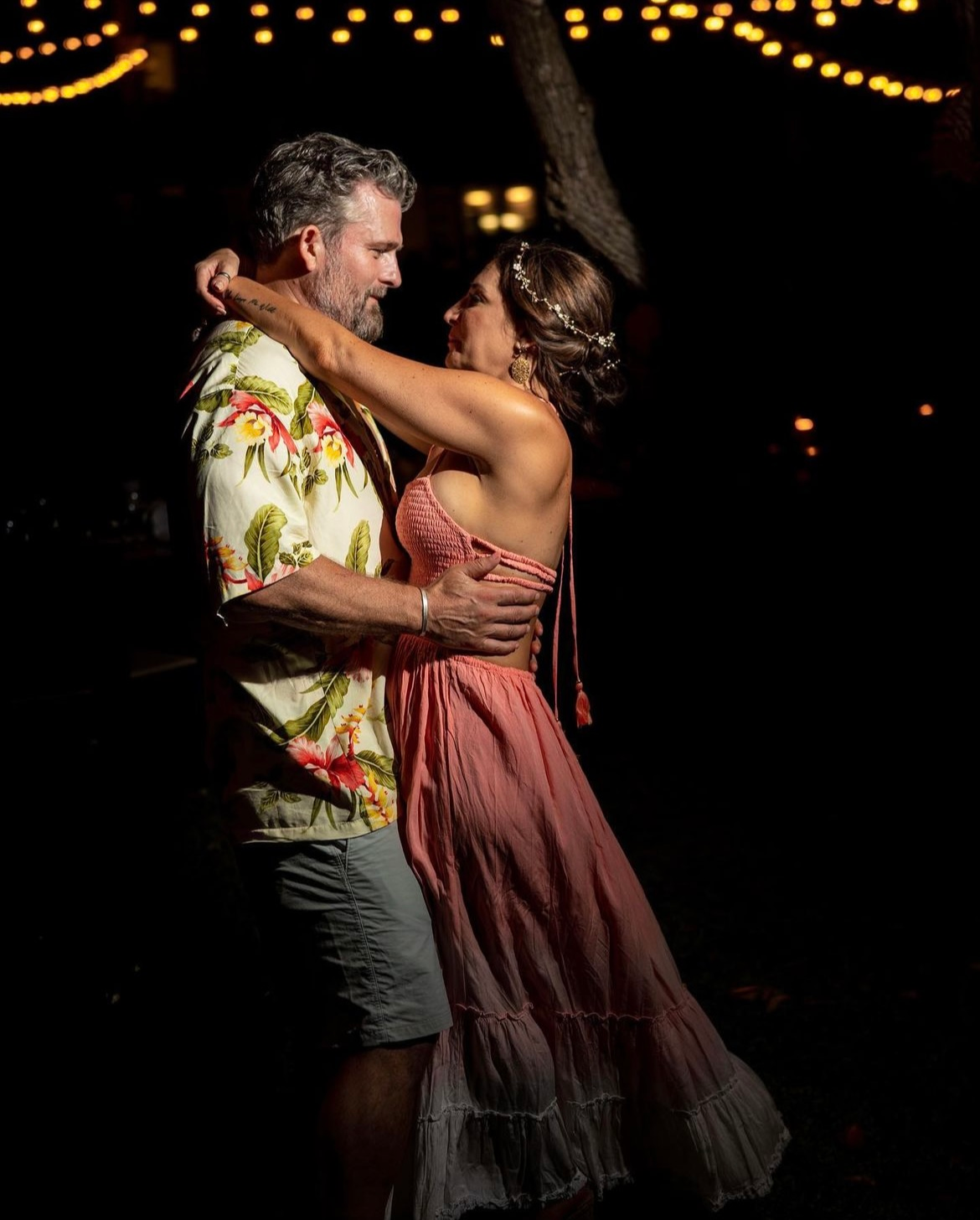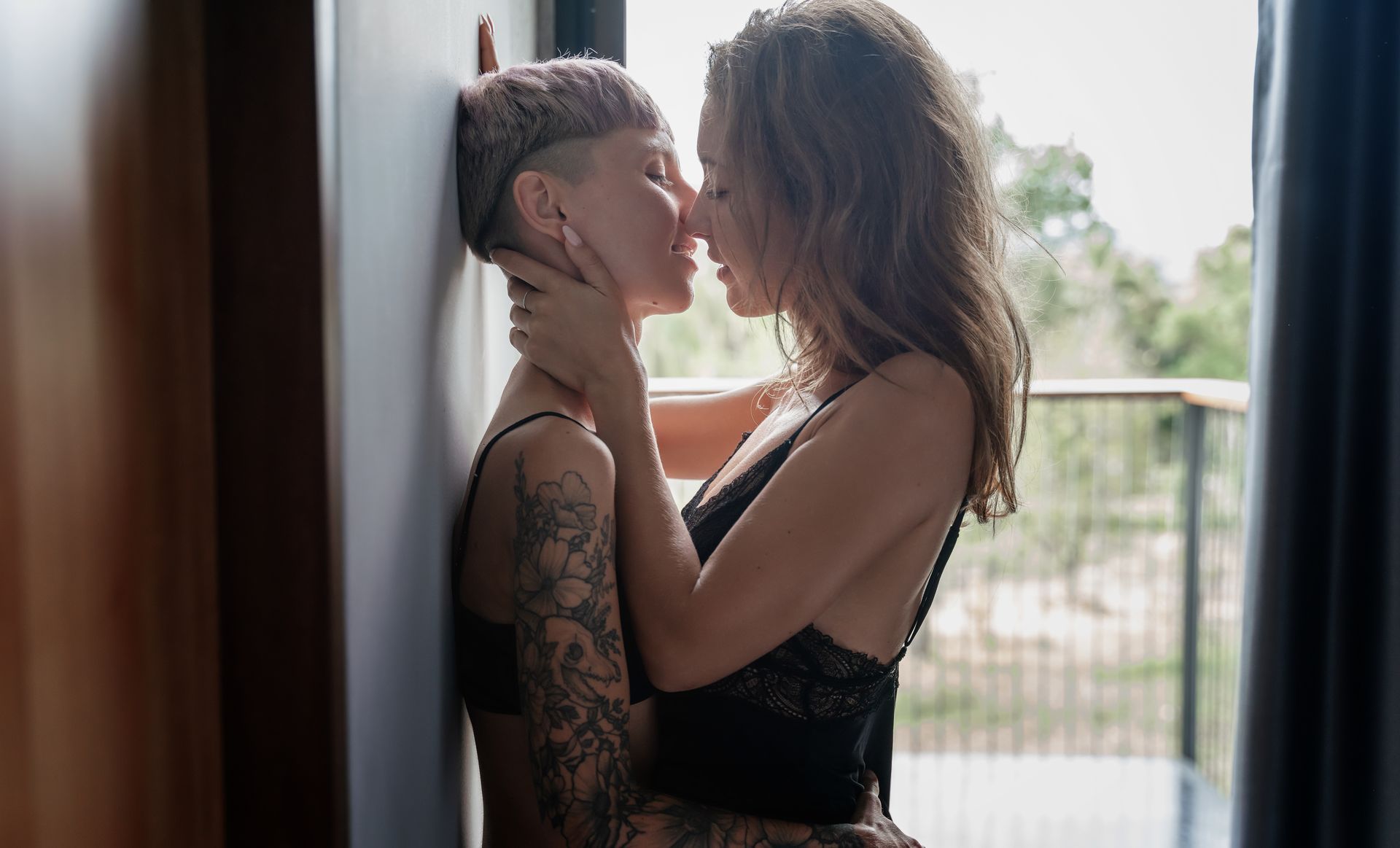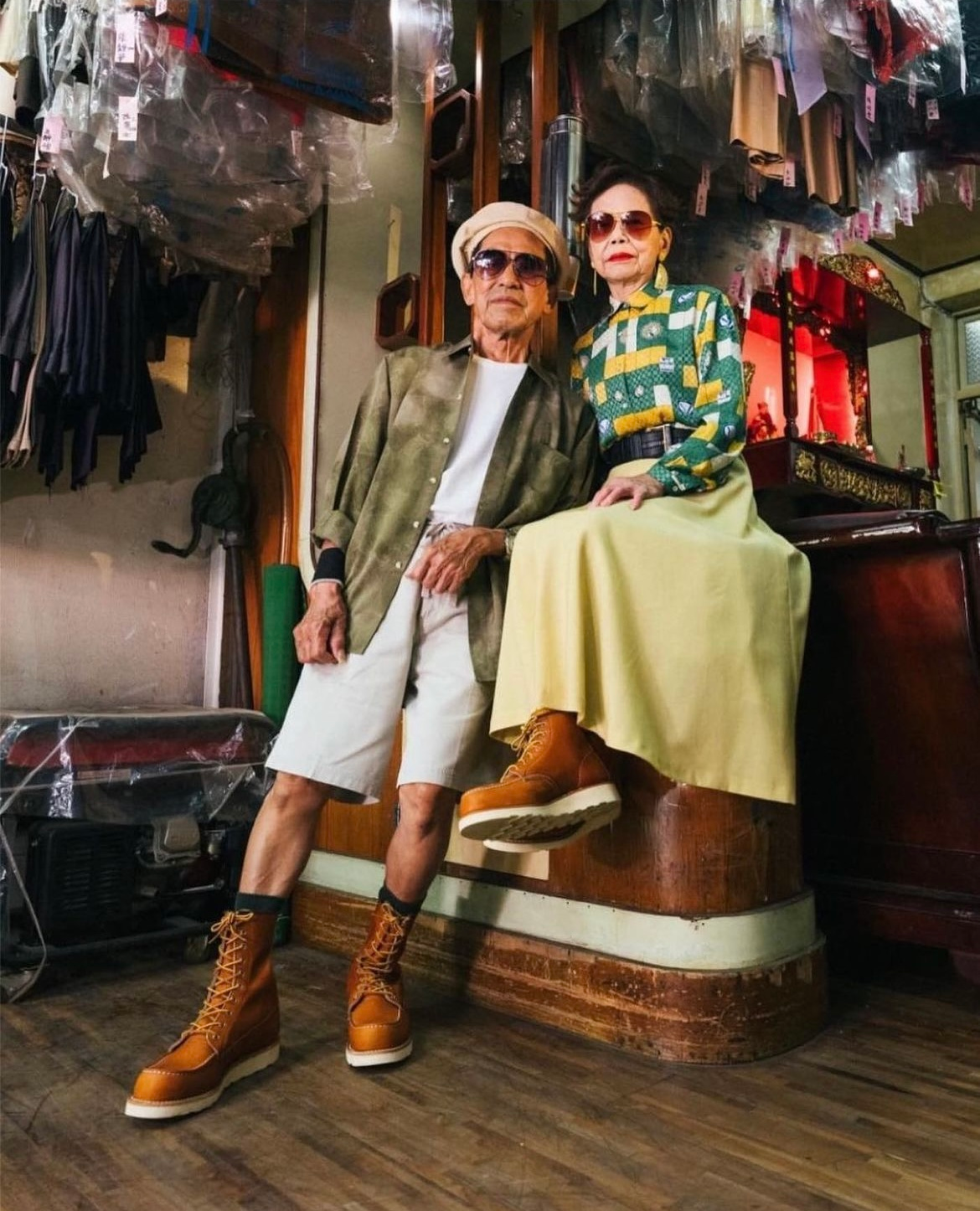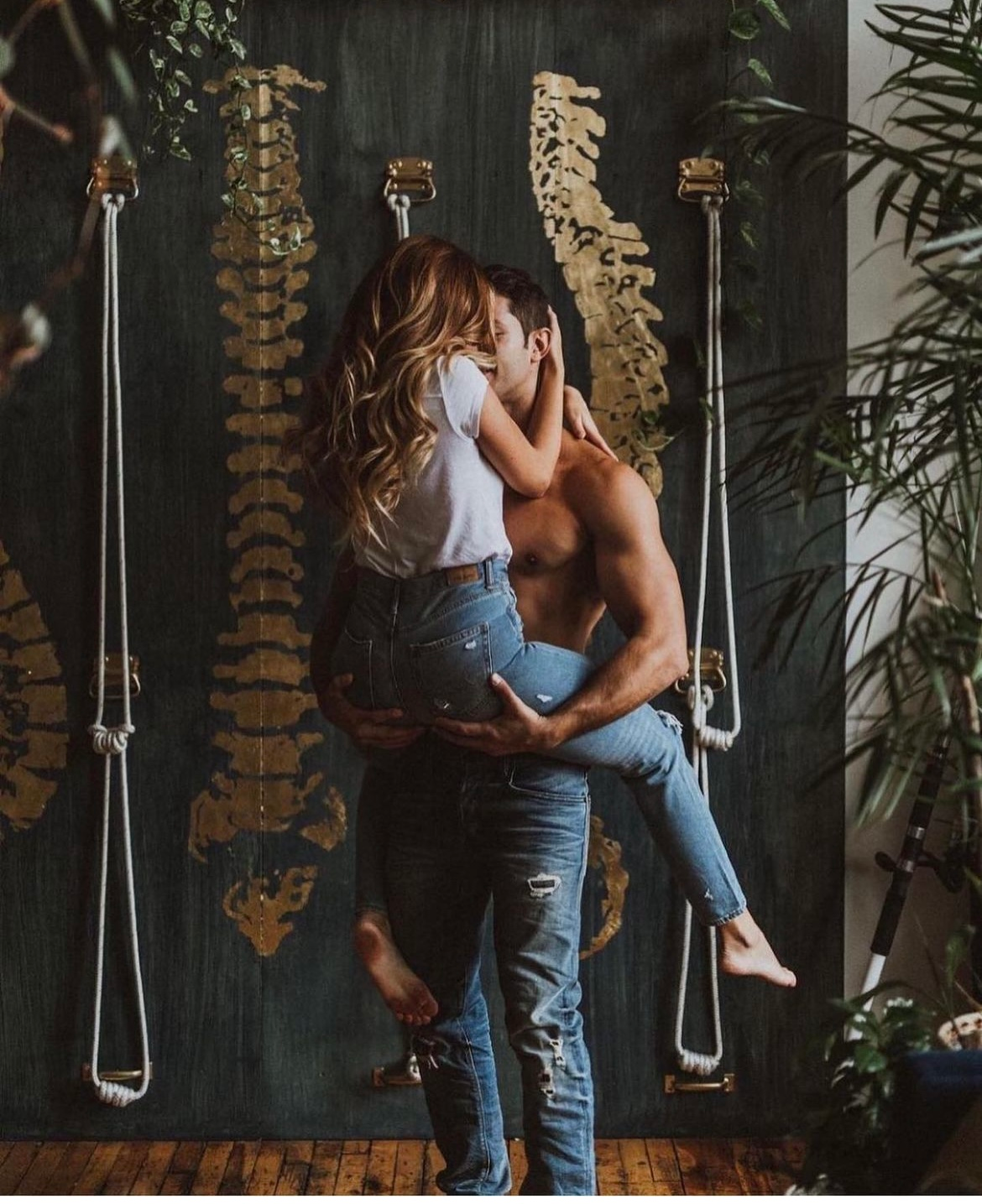An Interview with Thou Shalt Not Kill - A marriage podcast
Hi everyone, it's Jolene with It's Just Lunch and Elite Private Search. I am here today with Ann and Scott Travis. They are the hosts of the popular podcast Thou Shalt Not Kill, a podcast about marriage. I had the privilege of meeting this amazing couple last month, and I don't know—they just spoke to me. You can see them here; their energy is pretty amazing, even on screen.
I thought I would do an interesting twist—interviewing people for our singles who are thriving in a relationship or marriage and directing you to resources by listening to a couple talk about marriage. Instead of always listening to being single and what's wrong with dating or what's not working, let's have a different conversation about what it's like to already know the tools inside you and just need reminders that, “Oh, I can do this, I can thrive too.”
So, welcome to you two, and happy Valentine's Day!
Happy Valentine's Day!
I'm wearing my Saint Valentine shirt.
Very cute!
I like your shirt.
Thank you, Valentine's.
Yeah, you're stuck. Cool, we're good.
So, introduce yourselves, please.
I'm Ann Travis.
And I'm Scott Travis, and we have a podcast, Thou Shalt Not Kill, a podcast on marriage. We just bring up our life experiences—our ups and downs and everything we've done through 35 years of marriage.
We don't look that old.
I don't really care.
I feel like we don't look that old, but we are old.
But no, we kind of go through what I think everybody goes through: the life challenges that we face every day. Whether it was early in our marriage, growing up kids, and now, as empty nesters, we're just living our life and having a blast. We weren't always nailing marriage. In the beginning, it was really rough for us. We did a lot of power struggles and, frankly, wasted a lot of time on [__]—excuse my language—but we figured it out. We're navigating it, and we're thoroughly loving our life, loving marriage, loving being together.
So, it's possible.
Yeah, it's definitely possible. It's just been a lot of communication. That's our biggest thing: communication. Until we got the communication down, literally, we only learned that in the last 10 or 12 years. We've really had to work on that part of our marriage because you come into marriage with high expectations of what you expect your partner to do rather than what you expect yourself to do—and that's where the frustration comes.
Frustration.
Exactly.
That's a little bit about us. We've been business owners; we've owned our own companies for years. We've introduced businesses together separately—she had a landscape construction business; I had a swimming pool business. I did mine for 28 years, she did hers for 17. We didn't touch each other's businesses, but we had two A personalities in the house running million-dollar companies separately but together. And that's a battle in itself.
Raising three kids was another challenge. We had some drug issues with one of our kids, gone through the gamut—drug addiction, suicidal thoughts, births, life, death, parents passing… we've been through a lot.
Here's one thing I find really fascinating: some people say, “Well, you don't really understand divorce.” Well, we come from 13 marriages between my egg and sperm donor and her egg and sperm donor. So, with multiple marriages in our house, we understand divorce—we get it.
Yeah, I've been personally divorced, but we understand it; we've lived it.
Clearly.
I really love that. Not just straight to a far-off topic, but I love that you said that because I recently connected with a woman who assumed that because she had been divorced, no one understands it—and she does. Anyone can understand divorce if they've been touched by it. Same thing with classifications of married, divorced, single, widowed. A lot of people will come to us and say, “Why are you single?” I think it's a terrible question on a date, but it does get asked, and people start feeling judged.
I try to create a culture here where it doesn't matter if you've never had a relationship and you're 60, or if you've been divorced three times, or if your spouse passed away—you are dateable, likable, and lovable.
I just want to hear the story of how you two met.
Do you want to go, or you want me to go?
I can go.
Okay, so I'll correct her when she's wrong, as he does frequently.
We met at Mervyn's Department Store.
Oh, nice.
We were both working at Mervyn's. Keep in mind, we've been married 35 years, so this was a long time ago. Scott was in the men's department, which was a direct shot—I could see him from the domestics department where I was working. At the time, I was dating someone else. I had dated this other person for two years, and literally the weekend I broke up with him, I ran into Scott—and that was the beginning of our courtship. Six months later, we were engaged, and six months after that, we were married.
I saw Ann when we were working together. I was 18, she was a little older, 21. She's older than me, so she could go out to bars and drink, while I was still a young guy. The first time I saw her, I went home and told my mom, “I know that's my wife.”
We talked about that, ladies.
Yeah.
I went home and told my mom, “I met the girl I'm going to marry.” She said, “Okay, you're 18 years old. Go take a shower, a cold shower, and get back with me.” We knew each other off and on. I knew she kind of liked me, and I really thought her presence was pretty cool. I would bring the girls I was dating to introduce to her, just to make her mad.
Long story short, I was moving out of my house and onto my own. Her number fell out of my phone book, and I hadn't talked to her in about six months. Her name popped up, I gave her a call, and said, “Hey, I'm having a housewarming party on my 21st birthday.” She had just broken up with her boyfriend, and we hooked up. Six months later, I asked her to marry me. Six months after that, we were married.
I love that you said that, too, because it’s still so relevant today. Let's say someone has been married before. The choice someone makes—deciding what they want—is always the determining factor. Character and open-mindedness matter, but intention is crucial.
I got married at 21, he was 24. I had dated someone for two years. Being older and going back out into the dating world would be a different concept. We weren’t prepared to get married at 21. We had strong personalities, so there were big power struggles.
If you're going into a second relationship, a new marriage, or your first marriage, it's about setting the intention of what you want and not compromising your values, morals, wants, and needs. There are hard yeses and hard noes in a marriage. Set boundaries and respect them.
Here’s your text with punctuation added and timestamps removed:
And making it all about the tough conversations—plan, like, a dozen super cool dates. Go be a tourist in your own city. Go grab a camera and say, "Hey, let's go check out weird stuff," and take photos all day. Like, you know, just create times. "Hey, I want to go learn how to..." I had a couple that, you know, she goes, "I really want to learn how to fence," and the guy goes, "All right." They took fencing lessons, you know? And so now the pressure is removed off of, "Are you and I gonna get married?" And now it's on, "Who are you? Do we like each other? How is this?" And people have the space and time to really see someone for who they are.
So I just really appreciate that. I think a cool idea is just, like, one weekend or whatever it is. And I don't know if, obviously, only if you're exclusive, it's like, "It's my weekend, you're going to do..." And it sounds bad: "You're going to do what I want to do. I'm going to show you my world. I'm going to show you my world and what excites me, what turns me on, what makes me happy, and gets my blood flowing," whether that's skydiving, going and reading a book in a park, whatever it is.
Because you're going to know if that other person is like, "Oh, geez, I don't think I can get behind this," or you're like, in your mind, "This sounds really boring." Then you go do it, and you're like, "Man, my eyes just opened up to a whole different world." You know what I mean?
Well, let me end on this note. This could be a really fun idea. Okay, I would love to hear what your perfect date or weekend, or the perfect way you would spend, you know, and just feel so loved and feel so connected. I'd love to hear that.
Your dates, your perfect dates—waiting to hear, because this might be a date I need to hear. This is gonna either—well, I'm just gonna spit it out. We were in Southern California. His dad had surgery. And in the Laguna Beach area, they have this thing called the Sawdust Festival. It's all like artisans and stuff that are there. So we spent the day. We went down there, we went through the whole Sawdust Festival, and we had a great time. Then we were looking for a couple necklaces for me, and Scott had suggested these. So we were looking for the perfect necklace, and we spent the whole day shopping.
And for me, this was a great day because the whole day was kind of about me. Scott spoiled me rotten—bought me clothes, bought me jewelry, bought me all this fun stuff. But the thing that was so special about the day is that we were just so focused on each other the whole day. There were no distractions. It was just the two of us. We weren't on our phones. To me, it was just like Pretty Woman. It was a pretty moment, and I was totally spoiled.
Of course, I enjoyed that part, but what I enjoyed about it was just that Scott was picking out things with me. He was totally in the process of, "Oh, I like this. Do you like this? Here's the thing I can—" and complain because I don't like what she's wearing, or I could take her out and show her what I like, and buy it for her if she likes it, you know what I’m saying? A lot of people do that, but it was exactly what we did.
It was really weird because there was one particular necklace I was looking for. We found a store with a bunch of them, so we're like, "Oh, Christmas time!" But yeah, it's fun. And honestly, I didn't even realize that until afterward. Probably the next day, she said, "That was probably one of the funnest days I've had in years," and I was just like, for me, it was just spending time with my wife. And again, every day for us is Christmas. If you want something, you just get it. It's not monetary. I don’t want to—I'm just saying, it's just not about throwing money at your partner. That wasn’t the point. The point of the day was that he was so focused on helping me find things that he wanted to see on me or that he thought I would enjoy. That’s where all the pleasure came from—the focus on each other and closeness. It created a whole special day.
I love that. My perfect date, honestly, since we traveled quite a bit, is just being on a different island and being in the middle of nowhere where we don't know anybody. Here's the thing—I like it when we don't know anybody and nobody knows us. It's her and I, and we just know that we can kill wherever we're at, connect, just meet different people, see different things, enjoy people—it’s still fun.
It's taking work. Well, you know, it is interesting too, and I often wonder: is this something that we can apply? This is actually my hope for this interview—can we apply this for younger couples who are starting out? Or is this somewhere you get because people surrendered to each other and allowed, and then time came, and then the freedom with the kids? Do you get to where you’re at without where you were, without the past? So it’s interesting to me.
For adults who already raised their kids and been through a lot of life experience, I think what they need to take away from this is that it's all about the connection from this point on and what you can create together, because you don’t have the responsibilities anymore.
It gets a little tricky with clients who are in their 40s and 50s, still raising kids and building their businesses. That's tricky—trying to come together. But I think what you guys are trying to say is, let your partner evolve always and show up for them. And if you can learn to nail your communication down, establish that way of listening to each other—really hearing what your partner is saying—and you learn to speak to each other respectfully, without anger, without all that stuff, you're going to expedite that process by years. Literally jump ahead of the group.
That's what I wanted. You will jump ahead if you just focus on the time together. You eliminate—like in our podcast, this is what we do. Our podcast is almost kind of like therapy for us, because we get on it and ask each other questions that we've never asked before. It keeps us on the forefront of what we want. Everything on the table. I want Ann to know everything on the table—my good, my bad, my ugly. And conversely, I want all the happiness to be shared with her too. We’re super transparent in our podcast because if we're trying to help people, and tell them the things we struggled with and the solutions we came by, it doesn’t serve anybody if we’re not completely transparent.
A lot of stuff crops up that we didn’t know. We thought we had everything under control. We have three kids; we grew up in Las Vegas. She had her company with 30 employees, I had mine. We were spread so thin, and our connection was, you know, sex on every other Thursday if it wasn’t raining. That’s basically the way it was because we didn’t connect. Our sex life was terrible. We've got—we say everything about it on our podcast. We don’t pretend to be prudes or have a perfect marriage, but the connection we have is we’ve been honest and made sure the other person knows where we’re coming from and that we're committed to each other.
I love that. Sorry to interrupt, I love that you said, "I want Ann to know everything." It’s funny because most people would assume she does because you’ve been together 35 years, but I love that you’re like, "No, she doesn't. She’d be like, I want her to discover it." And that is, if people could tune in to that type of transparency early in dating, where they just are like—I'm not talking about oversharing—but just transparency of who they are, owning, "Here’s where I’m going. Do you want to come on board? If not, hey, you’re cool. Nice meeting you."
The funny thing about that is, I may have a goal where I want to go, and tell her, "That’s where we’re going." But when we’re together, maybe that’s not the ultimate goal. Maybe we find a side street we want to go down, and this is even better because that’s where the commitment comes into play. That’s where dedication and commitment come into play.
You have two goal-vision perspectives. You blend them and develop your goal and act on it. We had dedicated date nights and dedicated board meetings, which sounds really weird. Date night was her and I, no phones. Whether we had sex in the back seat or when we ate dinner—post, not a movie—we literally wouldn’t leave the driveway in front of the house.
We also had board meetings. I’m the CEO of my pool company; she’s the CEO of her company. Together in our marriage, we’re both CEOs. We would sit down, and we always went to a restaurant because we can’t yell at each other there. I would say, "This week, my company—I won’t be home until eight at night. I have a ton on my plate, I won’t be very happy." She knew. Conversely, she would tell me, "I have this going on, trouble with this, free time here," etc.
It wasn’t only about work; it was about the family too. Talking about couple’s goals, vacations, house, buying a new car. You really got down to the nitty-gritty. I love that—you took the emotions out and said, "We’re making a business plan." That’s a great way for clients to look at it: tough conversations in a neutral place. Don’t start playing house too quickly. Don’t go over to dinner on date four when you’re not ready.
I have a couple in their 70s—they’re committed to making the relationship work. They decided the first time they’d have sex, they’d go to an amazing dinner at the best place in San Francisco, book a room for the weekend at the Four Seasons, and turn it into this amazing weekend where they felt ready, comfortable—not like, "Oh God, he’s in my space and I don’t really know him." Brilliant. Love and romance in your 70s—it’s amazing.
That started happening with us when we moved here a year ago. Our sex life went crazy. Our communication is on point, mostly. Sometimes we hiccup. A couple of weeks ago, we were going to Las Vegas—a six-and-a-half-hour drive. Ann was just mad. She yelled in the truck for three and a half hours. There was no getting away from me, but I held space for her to vent. After about three and a half hours, I said, "Stop yelling at me." She goes, "I’m not yelling at you." I go, "You’re yelling at me!"
Only in this fact that you’re yelling your problems. I said, "That creates a lot of stress." I didn’t come at her mad. I came with hands up: "Listen, I’ve heard everything. You’ve dissected this problem every which way to Sunday. Stop. It’s not doing any good for you." I’m like her coach, saying, "Come on, you’re not this person. You’ve got all your anger out—now move on."
It’s a humongous gift he gave me by letting it vent for three hours—not fixing it. I wasn’t right. That’s what I heard. I said, "Oh, you didn’t fix it, you just said, 'Hey, I’m full, I don’t hear you anymore.' No, I can’t do that anymore."
We have a tool like that too. I say, "I am a red-hot hornet right now," and he looks at me, and there’s no conversation until I can move through.





